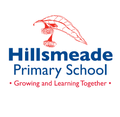Mental Health and Wellbeing

Respectful Relationships
Our school is one of over 1,950 government, catholic and independent schools that implement the Respectful Relationships whole school approach.
The Respectful Relationships initiative supports schools to promote and model respect, positive attitudes and behaviours. It supports students to face life's challenges by developing problem-solving skills and building resilience and confidence as well as teaching them how to build healthy relationships.
The whole school approach to Respectful Relationships supports schools to embed a culture of respect and gender equality across the entire school community. It came about after the Royal Commission into Family Violence identified the critical role that schools have in creating a culture of respect and equality to change the story of gender-based violence for future generations. It recommended that respectful relationships education be delivered through a whole school approach in every Victorian government school.
The safety, health and wellbeing of all our students is our top priority, and part of this is making sure students have a voice and a sense of agency. We will continue to support all students to make sure they have a safe and inclusive learning environment.
The Victorian Curriculum provides the basis for what we teach about respectful relationships and identifies the knowledge, skills and understanding students need to engage in respectful relationships. Delivering the Victorian Curriculum is compulsory for all government schools, though schools can choose which resources they use to deliver on these requirements.
The Department of Education and Training supports schools to deliver this curriculum through the optional evidence-based Resilience, Rights and Respectful Relationships teaching and learning materials, developed by education experts. These age-appropriate resources help students learn and practice social skills and apply them in a positive way to learning, life and relationships. They include the topic of gender and identity.
We use this and other resources based on our teacher’s judgement about what is appropriate for students and school community.
Topics covered from Prep-Year 6 include:
Topic 1: Emotional Literacy helps students to learn how to be aware of, understand and use information about their own emotions and the emotions of others.
Topic 2: Personal and Cultural Strengths helps students to learn how to recognise and understand their own and others’ strengths and positive qualities, and how to identify how the values and strengths they learn from their family and culture help them to treat others with respect.
Topic 3: Positive Coping supports students to develop language around coping, reflect on their coping strategies and build a range of positive coping strategies.
Topic 4: Problem-solving helps students to learn a range of problem-solving techniques to manage personal, social and ethical dilemmas.
Topic 5: Stress Management supports students to consider the causes of stress and develop a range of self-regulation and coping strategies they can draw on to manage stressful situations.
Topic 6: Help-seeking helps students to develop skills and knowledge for peer support, peer referral and help-seeking.
Topic 7: Gender norms and stereotypes helps students consider the influence of gender norms on attitudes, opportunities and behaviour, and to learn about gender equality, inclusion, human rights and the importance of relationships that respect people of all genders.
Topic 8 Positive gender relationships helps students develop an age-appropriate understanding of gender-based violence, safe and unsafe behaviours and consent. Students also develop self-care, peer support and help-seeking skills they can use in response to situations involving gender-based violence.
You can read more about the Respectful Relationships initiative, including some common myths and facts at: www.education.vic.gov.au (search respectful relationships).
